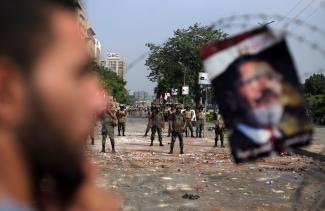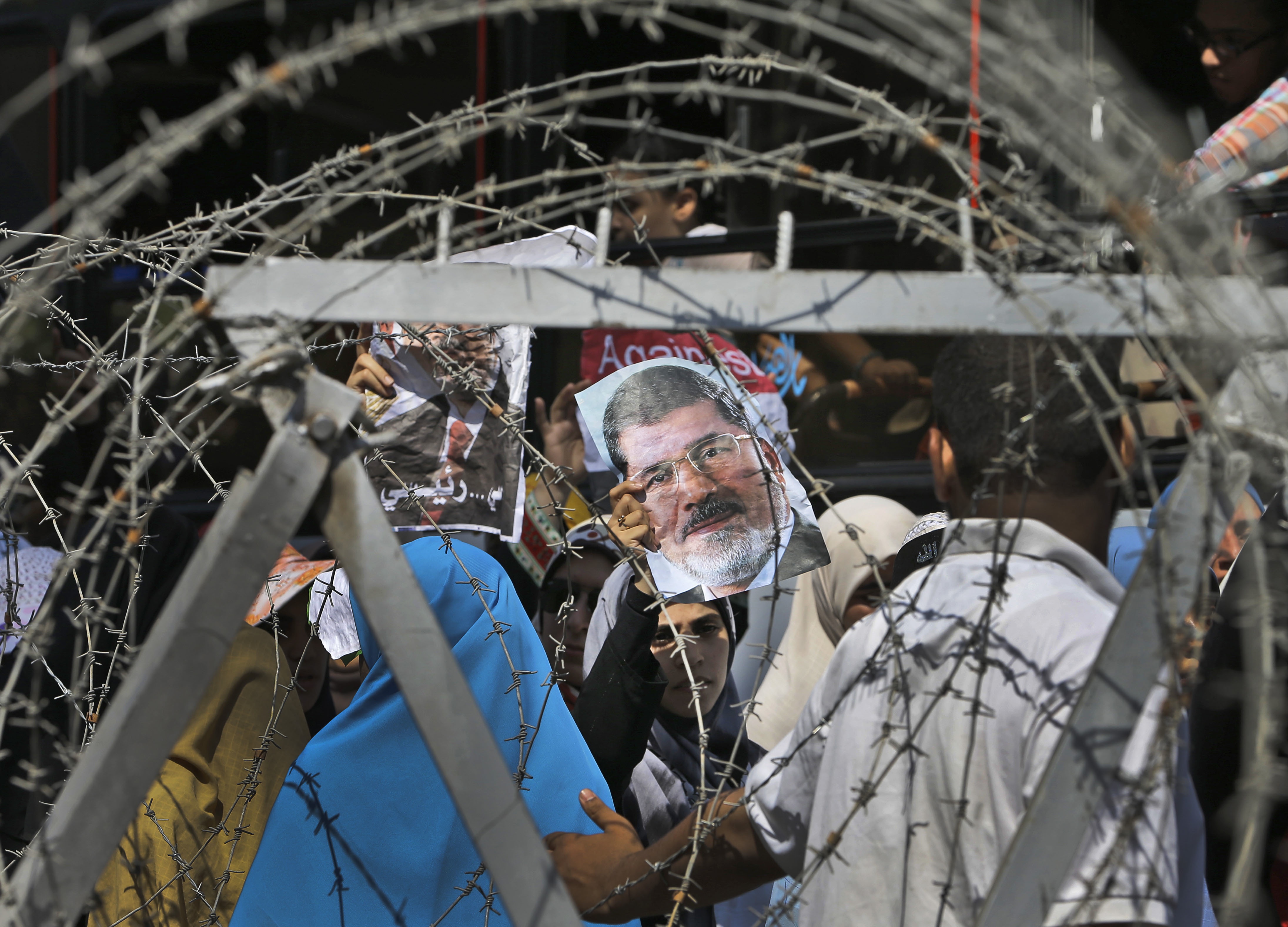Repression
Pledging allegiance

In the Arab world, people tend to have little trust in public declarations. That is a consequence of decades of authoritarian rule. Rumours abound. In Egypt, the constitutional referendum will not change that.
According to the military-backed government, it will pave the way to democracy. That claim is unconvincing however. While state agencies may campaign for yes votes ahead of such an event, they must not suppress the no campaign as they did in Egypt. Opponents of the new constitution were arrested, and various opposition groups told their followers to boycott the referendum. In this setting, casting a vote was as much about pledging allegiance to those in power as to expressing a political will. Accordingly, it is no surprise that more than 98 % were declared to have voted yes. The low turnout of above 38 %, however, proves that support for the government is really not very strong.
The regime is proud of having achieved a higher turnout than the previous government, which was run by the Muslim Brothers, did in 2012 (almost 33 %). The sad truth, however, is that the flawed, faith-inspired constitution that was passed with a slim majority back then had more democratic legitimacy than the one passed now. At least all political camps had been free to campaign.
Egypt's new constitution promises equal rights for women and grants more religious freedom. That is welcome – but not enough. The bad news is that new constitution perpetuates the privileges of the military and restricts the freedoms of assembly and expression. Such provisions fly in the face of democracy. They are not what young revolutionaries risked their lives for, rallying against the Mubarak regime in 2011. Observers report that not many members of their generation voted this time.
It is farcical that General Abdel Fattah al-Sisi, the defence minister and strongman of the current regime, turned the referendum into a kind of personal primary. He indicated he might run for president, if that was “the request of the people” and he got “a mandate" from the army. He is now likely to claim the referendum was such an endorsement.
Most Egyptians are tired of upheaval. They resented what the Islamists did in power. Mohamed Mursi, the president who was elected as the Muslim Brothers' candidate in the summer of 2012, failed to even try to unite his troubled nation by facilitating consensus or at least brokering compromise. Most Egyptians saw him scheming to secure absolute power and feared he would eventually enforce an orthodox Islamist order. Many now desire stability above all.
The trouble is that the stability they are likely to get will be illusive. Deadly riots immediately after the referendum are not a good omen. The counter-revolution, moreover, is also guilty of failing to unite the nation. Ever since the military toppled Mursi last summer, the authorities have been demonising the Muslim Brothers and their supporters, even declaring them terrorists. That declaration is likely to prove self-fulfilling. The most extreme radicals will feel invited to respond to violence in kind.
The Muslim Brothers' support has probably been dwindling in recent months. However, they consistently managed to mobilise the support of about one quarter of those entitled to vote in Egypt's free elections and referenda in the past three years. Thanks to low turnouts, that was enough to win majorities. Recently, some of their rallies have turned ugly and violent, but one reason is that the regime is denying its legitimate opponents any legitimate space.
The military leaders are, of course, aware of violence serving their cause. Every explosive device that detonates somewhere will give them reason to clamp down even more. And if occasional rioting fails to turn into full-blown terror attacks, some Egyptians will certainly trust the military to stage atrocities it can later blame the “terrorists” for.
Egypt's current rulers should remember that Hosni Mubarak fell even though played the “either me or the Muslim lunatics” game. His fate shows that repression does not result in real stability. The nation needs reconciliation. It must move on from a zero-sum understanding of politics with the winners taking all. Egypt needs a political system built on consensus and compromise – the sooner, the better.










